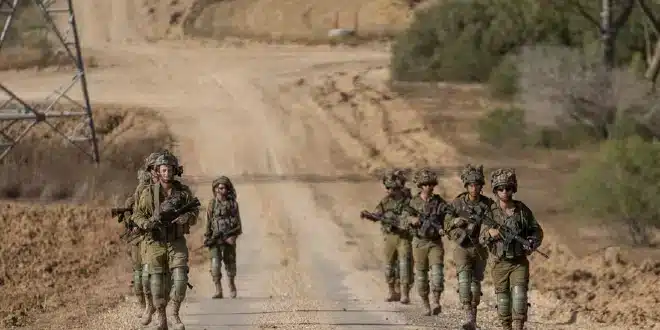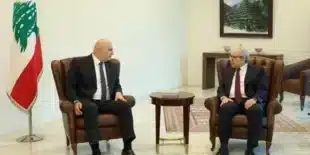The Israeli army’s chief spokesman has raised doubts about the goal of destroying Hamas in Gaza, revealing a rare public disagreement between the country’s political and military leadership.
Prime Minister Benjamin Netanyahu has insisted that Israel will continue its fight against Hamas until its military and governing capabilities in Gaza are eliminated. However, with the war now in its ninth month and no clear end or postwar strategy, frustration is growing.
“This idea of destroying Hamas and making it disappear is simply misleading the public,” said Rear Adm. Daniel Hagari, the military spokesperson, to Israel’s Channel 13 TV. “Hamas is an ideology and a party rooted in people’s hearts. Anyone who thinks we can eliminate Hamas is mistaken.”
Netanyahu’s office responded, stating that the security Cabinet, led by the prime minister, has set the destruction of Hamas’ military and governing capabilities as one of the war’s goals. The Israeli military, they asserted, is committed to this objective.
The military issued a clarification, affirming its commitment to achieving the war’s goals as defined by the Cabinet, and emphasizing that Hagari’s comments referred to Hamas as an ideology, not as an organization.
Signs of discontent over the war’s handling by Netanyahu’s government have already emerged. This coalition includes right-wing hard-liners opposed to any settlement with Hamas. Months of internationally mediated truce talks, including a recent proposal by President Joe Biden, have stalled.
Former military chief and centrist politician Benny Gantz left Netanyahu’s war Cabinet earlier this month, citing frustration with the prime minister’s conduct of the war.
Earlier this week, Netanyahu expressed displeasure with the army’s decision to declare a “tactical pause” in the southern Gaza city of Rafah to facilitate humanitarian aid delivery. An aide mentioned Netanyahu was surprised by the announcement, and Israeli TV quoted him saying, “We have a country with an army, not an army with a country.”
The conflict began after Hamas’s cross-border attack into southern Israel on October 7, which killed approximately 1,200 people and took 250 hostages.
While Israel’s initial war effort had broad public support, divisions have since emerged. Although Netanyahu has promised “total victory,” many critics and protesters now support a cease-fire to secure the return of around 120 hostages still in Gaza. The Israeli military has declared more than 40 hostages dead, and officials fear the number could rise the longer they remain captive.
In Gaza, the war has killed over 37,100 Palestinians, according to Gaza’s Health Ministry, which does not differentiate between combatants and civilians. The conflict has severely restricted the flow of medicine, food, and other supplies, leading to widespread hunger among Palestinians.
The United Nations reported that its humanitarian workers could not pick up aid shipments at the Kerem Shalom border crossing from Israel due to lawlessness in the area, despite no clashes along the route where Israel declared a daily pause in fighting. As a result, no trucks have been able to use the new route since the pause was announced.
Recently, Israel’s military has focused its offensive on Rafah, near the Egyptian border, claiming that Hamas’ last strongholds are there. Over half of Gaza’s 2.3 million people had sought refuge in Rafah, which is now nearly empty due to ongoing Israeli airstrikes and ground operations.
The Israeli military claims to have killed over 500 militants and caused significant damage to Hamas forces but expects the operation to continue for several more weeks.
Israel has also taken control of a 14-kilometer corridor along Gaza’s border with Egypt, including the Rafah border crossing. Social media footage shows the crossing heavily damaged, with only the former passenger terminal intact. Before Israel’s move, the crossing was used for humanitarian aid and allowing Palestinians to leave Gaza.
Ahmed al-Sufi, head of Rafah municipality, stated that Israeli strikes have destroyed more than 70% of Rafah’s facilities and infrastructure, systematically targeting camps and residential areas. Al-Sufi did not immediately provide further details.
In a separate incident, 11 people were killed in an Israeli airstrike in Rafah, according to Dr. Saleh al-Hamas of the European Hospital. There were no further details, and the Israeli military did not immediately comment.


